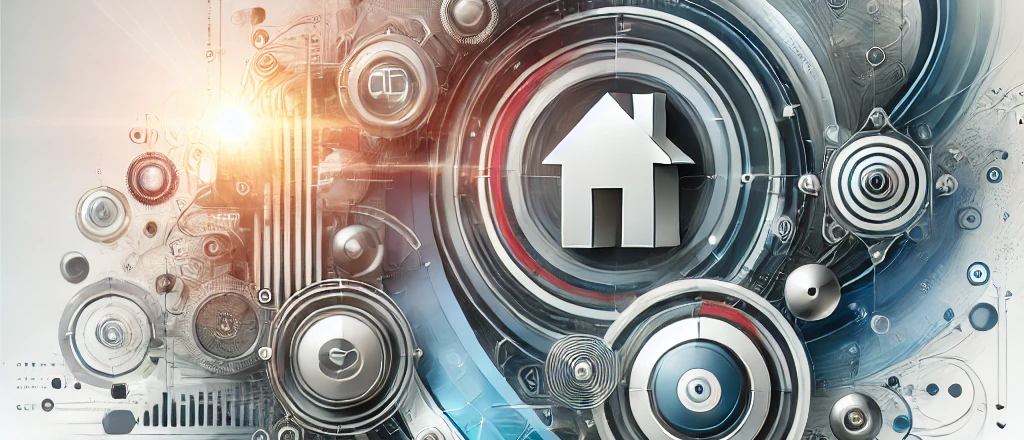Investors
How to Understand the Key Components of Smart Home Systems

Have you ever wondered how much you could save on energy bills each month with a fully integrated smart home system?
Smart home systems are reshaping how we interact with our living environments offering convenience and security but also significantly reducing energy consumption through efficient automation. This exploration delves into the components and benefits of smart home technologies, spotlighting how integration enhances the functionality and livability of our homes.
Exploring the Scope of Smart Home Technology
Smart home systems encompass a range of technologies designed to automate and streamline household functions. These include controlling lighting, regulating temperature, managing security and entertainment systems, and much more – all accessible via smartphones, tablets or a central home automation hub. The goal is to create a cohesive ecosystem that enhances comfort and efficiency, adapts to individual preferences and simplifies daily routines.
Technological Foundations of Smart Homes
The backbone of smart home technology involves the Internet of Things (IoT), which allows devices to communicate with each other via the internet. Other foundational technologies include artificial intelligence (AI) and machine learning, which enable these systems to learn from user behaviors and make predictive adjustments to improve efficiency and effectiveness. For instance, a smart thermostat can learn a homeowner’s schedule and temperature preferences, adjusting the heating and cooling systems to optimize comfort and energy usage.
What is Smart Integration?
Smart integration refers to the seamless connectivity and cooperation between various smart devices within a home. This concept is pivotal, as it ensures that all components of a smart home work in harmony to optimize user experiences and resource use. Effective integration allows for scenarios where your home’s security system can communicate with lighting controls to enhance safety or where your entertainment system adjusts settings based on the time of day and your preferences.
Benefits of Integrated Systems
Integrating smart home technologies provides numerous benefits, including:
Through smart integration, homes become more intelligently adaptive to the needs and habits of their inhabitants, providing solutions that are both proactive and responsive.
Overview of Smart Home Adoption in the UAE
The UAE is at the forefront of adopting smart home technologies, reflecting its commitment to integrating sophisticated automation to enhance lifestyle and efficiency. Residential developments across Dubai and Abu Dhabi are increasingly equipped with systems that control lighting, security, climate and entertainment through seamless smart technology integration.
This surge in smart home adoption is supported by high internet penetration rates and a push towards creating smart cities that prioritize technology-driven solutions for everyday living.
Government Initiatives and Market Growth
The UAE government plays a pivotal role in accelerating the growth of smart home technologies through strategic initiatives aimed at transforming urban environments into connected tech hubs. Projects like Dubai’s Smart City initiative seek to integrate IoT solutions into public and private sectors, promoting sustainability and enhancing resident life through technology.
Such policies underscore the government’s support for innovation in the smart home sector, encouraging wider adoption and demonstrating the substantial benefits of these systems.
High Initial Cost
The initial cost of smart home systems often appears prohibitive; however, the long-term financial and practical benefits provide a compelling counterpoint. Smart technologies contribute to substantial energy savings by optimizing household operations and enhance property values through technological upgrades.
As the market matures, the costs associated with smart home components are decreasing, making these systems more accessible and providing a stronger case for their adoption as a worthwhile investment.
Complexity of Technology
Concerns about the complexity of smart home systems are common, yet ongoing advancements are focused on user accessibility. Manufacturers are dedicated to developing interfaces that are intuitive, ensuring that users of all technical skill levels can operate their systems efficiently.
Comprehensive customer support and professional installation services further alleviate the intimidation factor, allowing homeowners to enjoy the benefits of their smart home systems without needing to manage complex setups themselves.
Adopting smart home technologies can seem daunting, but with the right approach, it can be a smooth and rewarding process. Here are some practical steps to ensure successful integration:
As we’ve explored throughout this discussion, the benefits of smart home systems extend far beyond simple conveniences. By enhancing home efficiency, providing significant energy savings and elevating the overall quality of life, these systems represent a forward-thinking approach to modern living. Starting with our initial question about potential savings, it’s clear that smart home technologies offer both immediate and long-term benefits.
Adopting such technologies, as shown through practical tips and insights into the UAE’s smart home advancements, demonstrates their growing accessibility and value. As you consider making your home smarter, remember the importance of starting small, seeking expert advice and staying informed about technological advances. Embrace the future of living with smart home technologies that make life easier, more sustainable and secure.






A private briefing for HNWIs, family offices and institutions seeking secure access to the UAE market. Each edition delivers one sharp signal – cutting through noise, highlighting governance and pointing to opportunities built for lasting value.
Clear. Strategic. Exclusive.